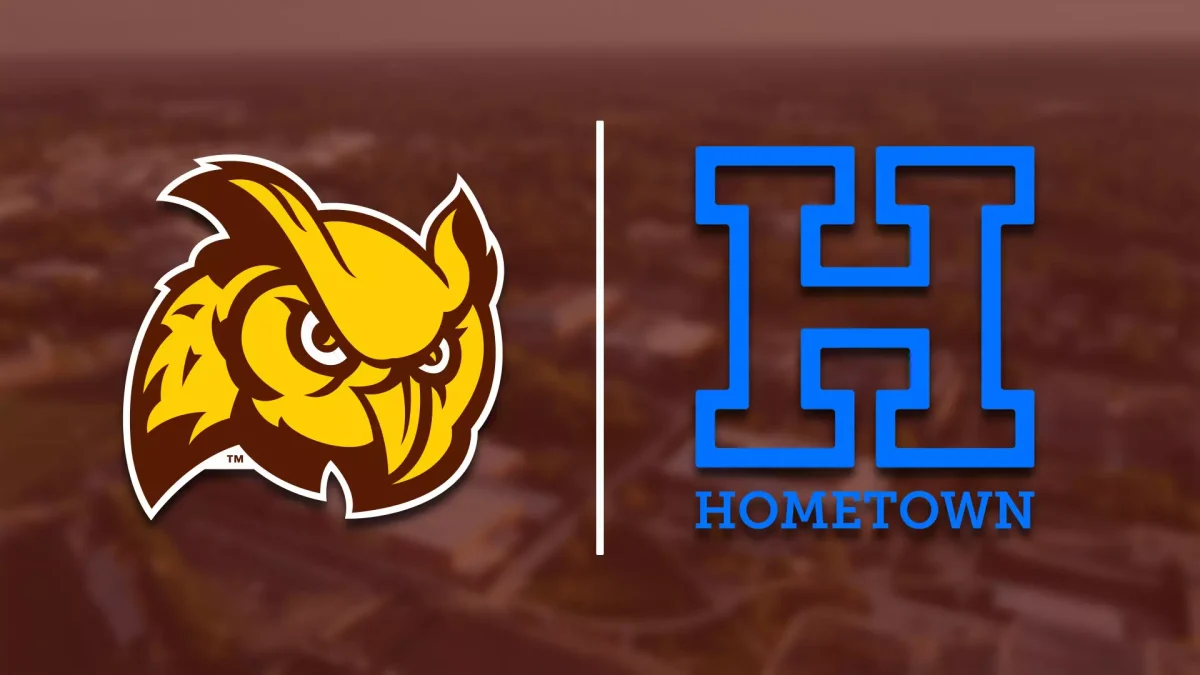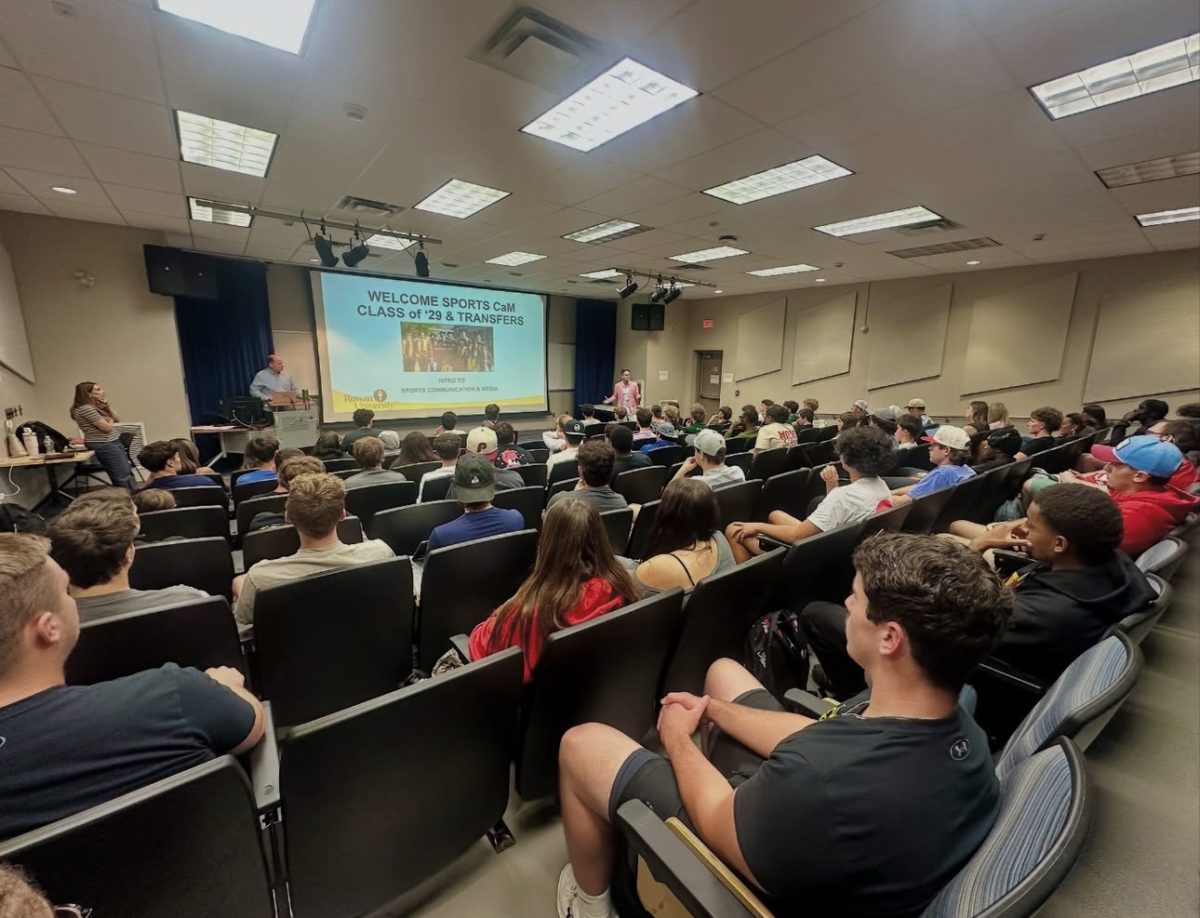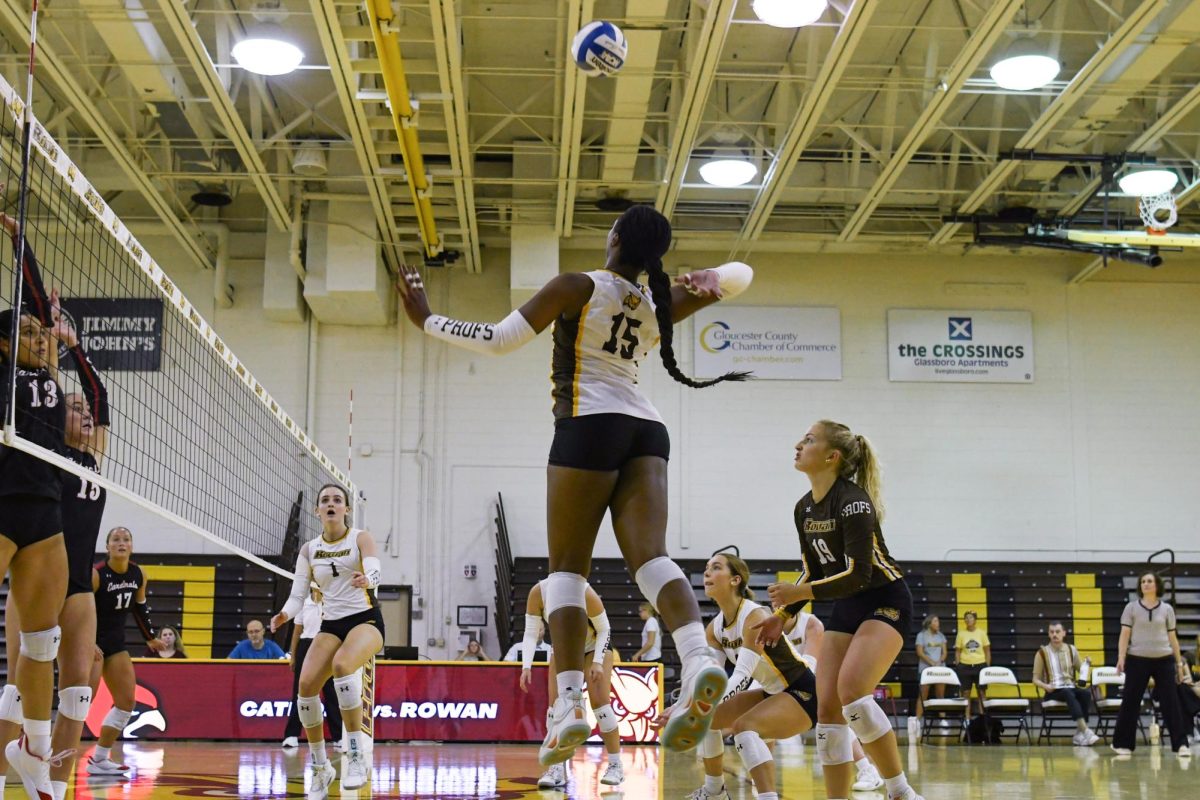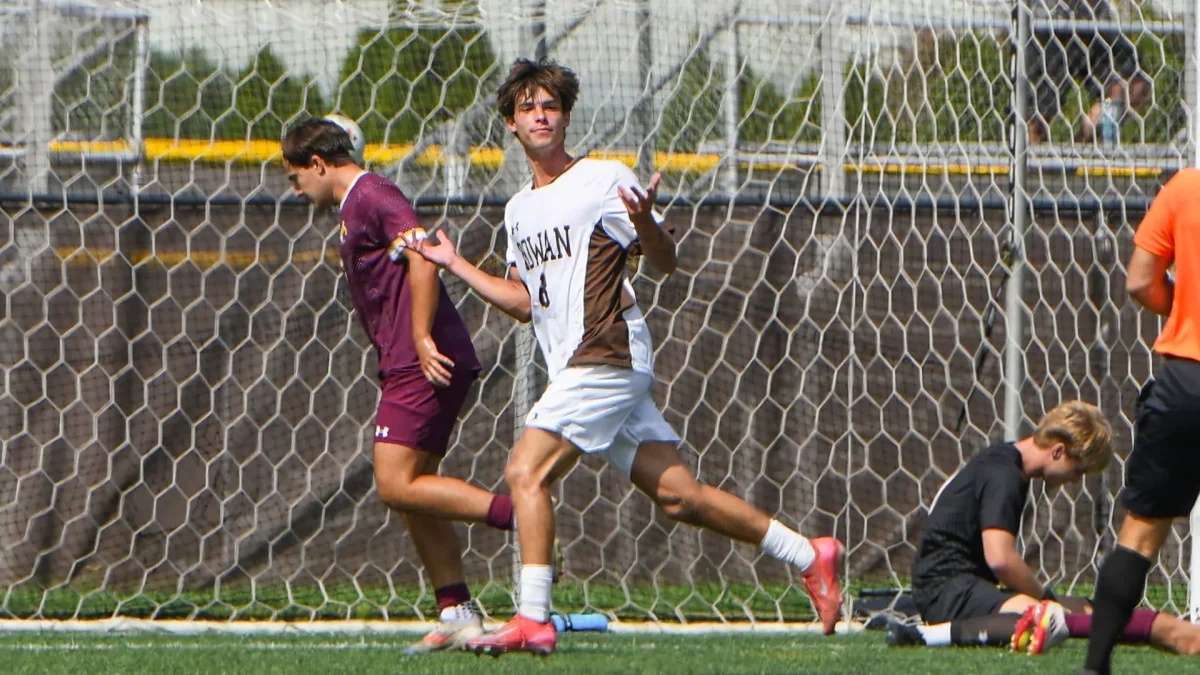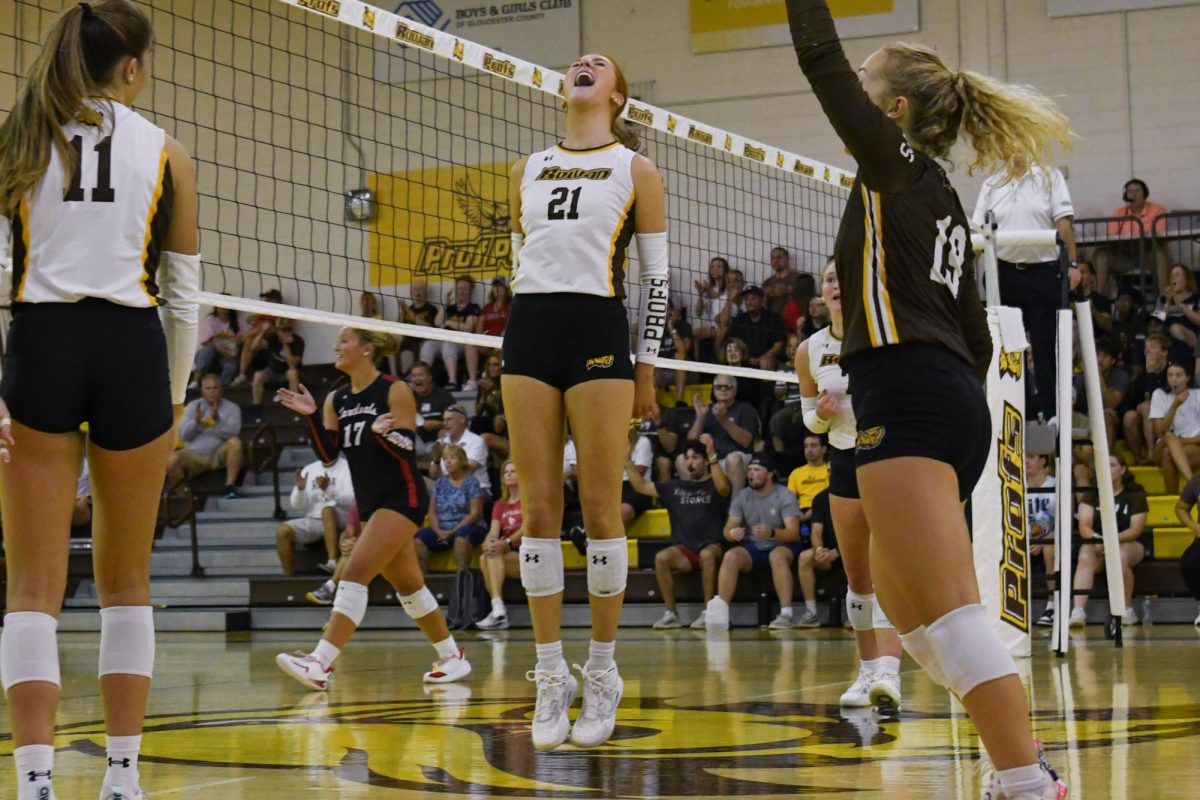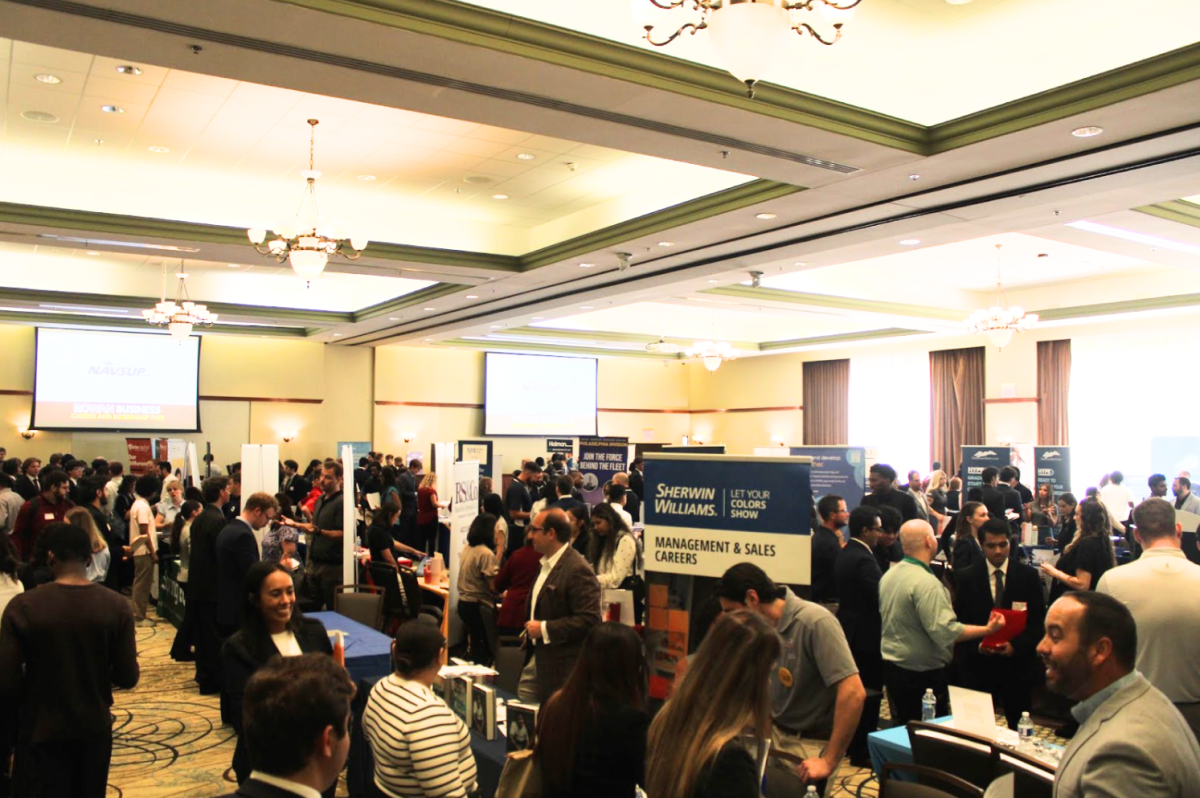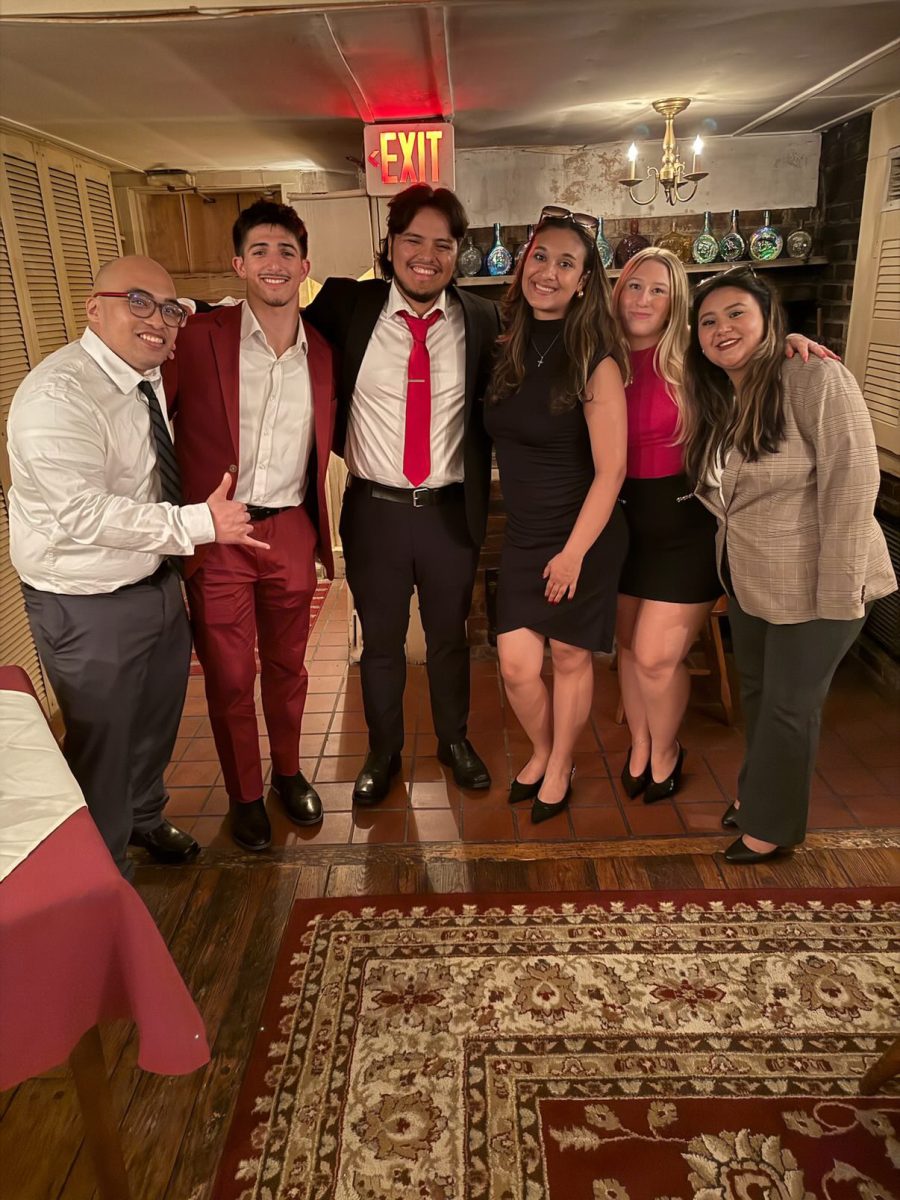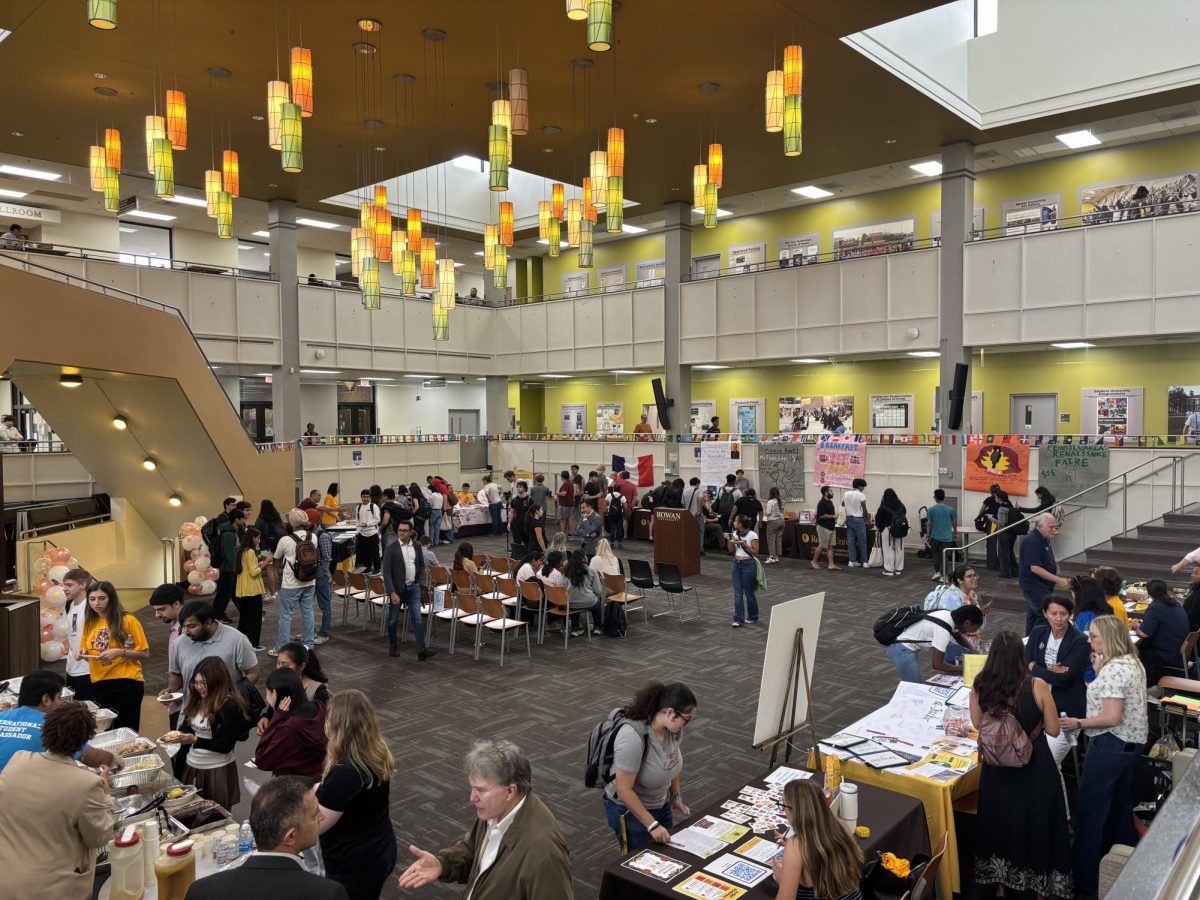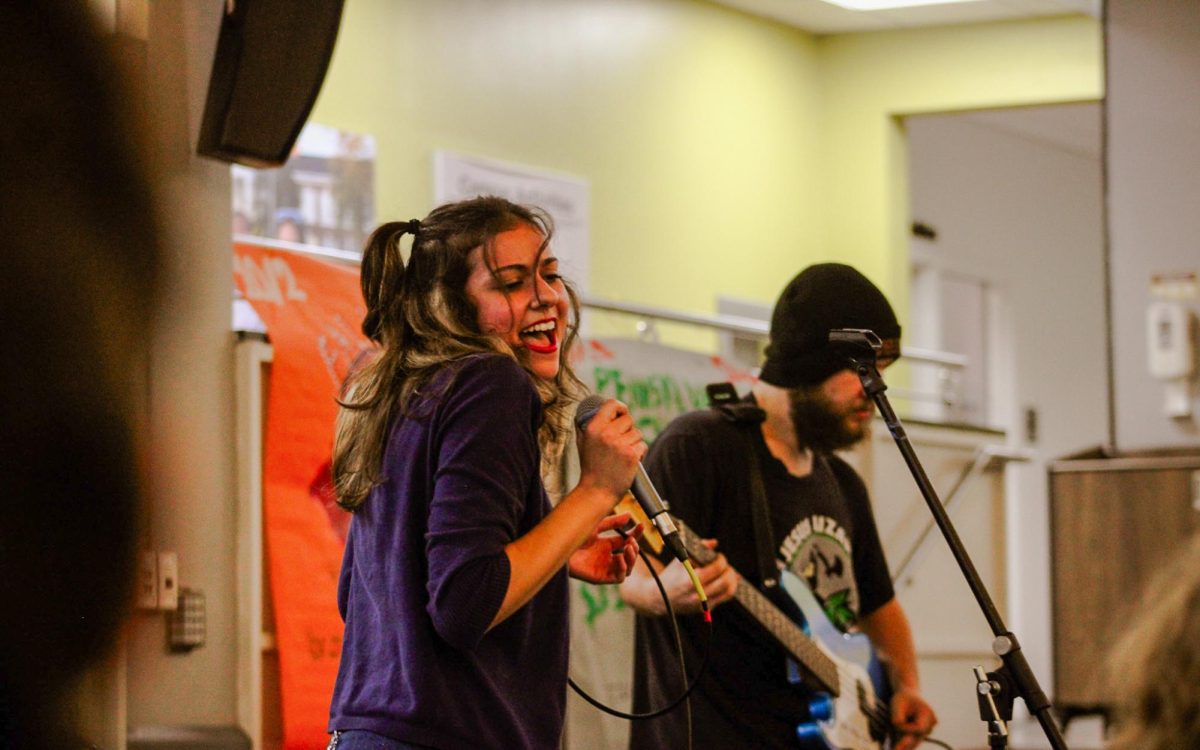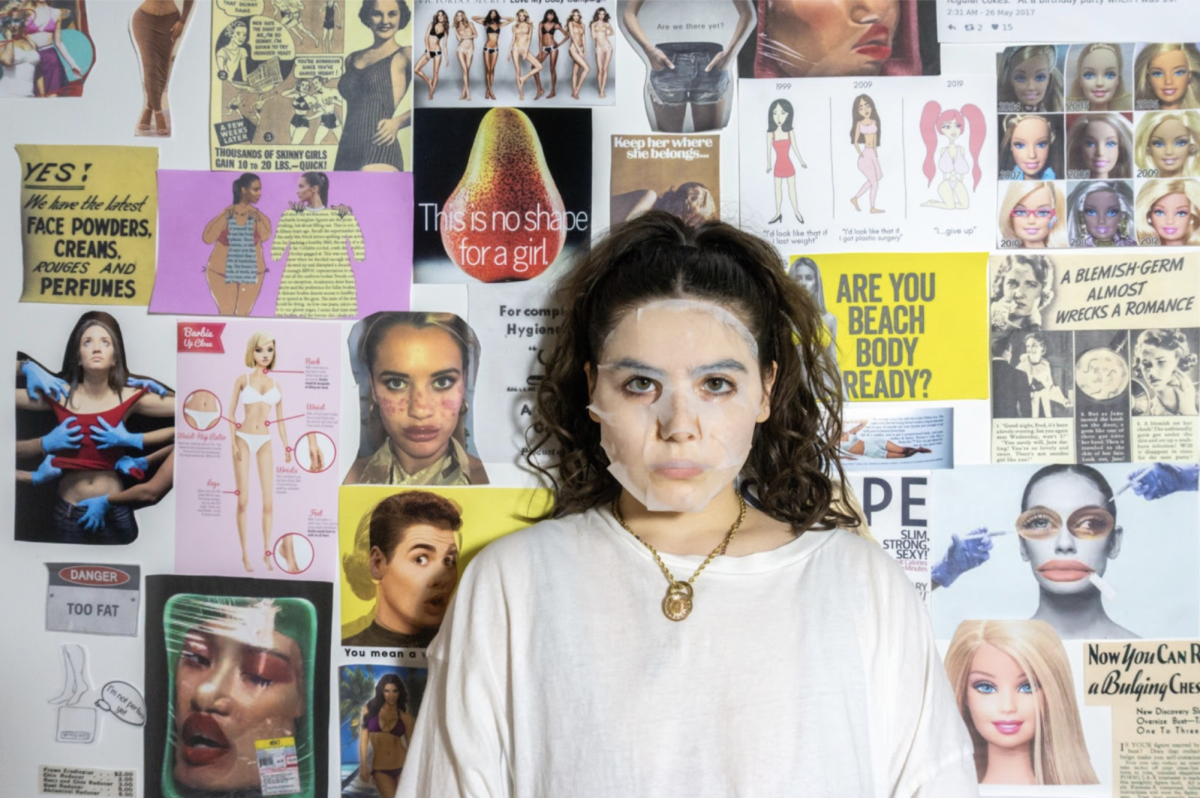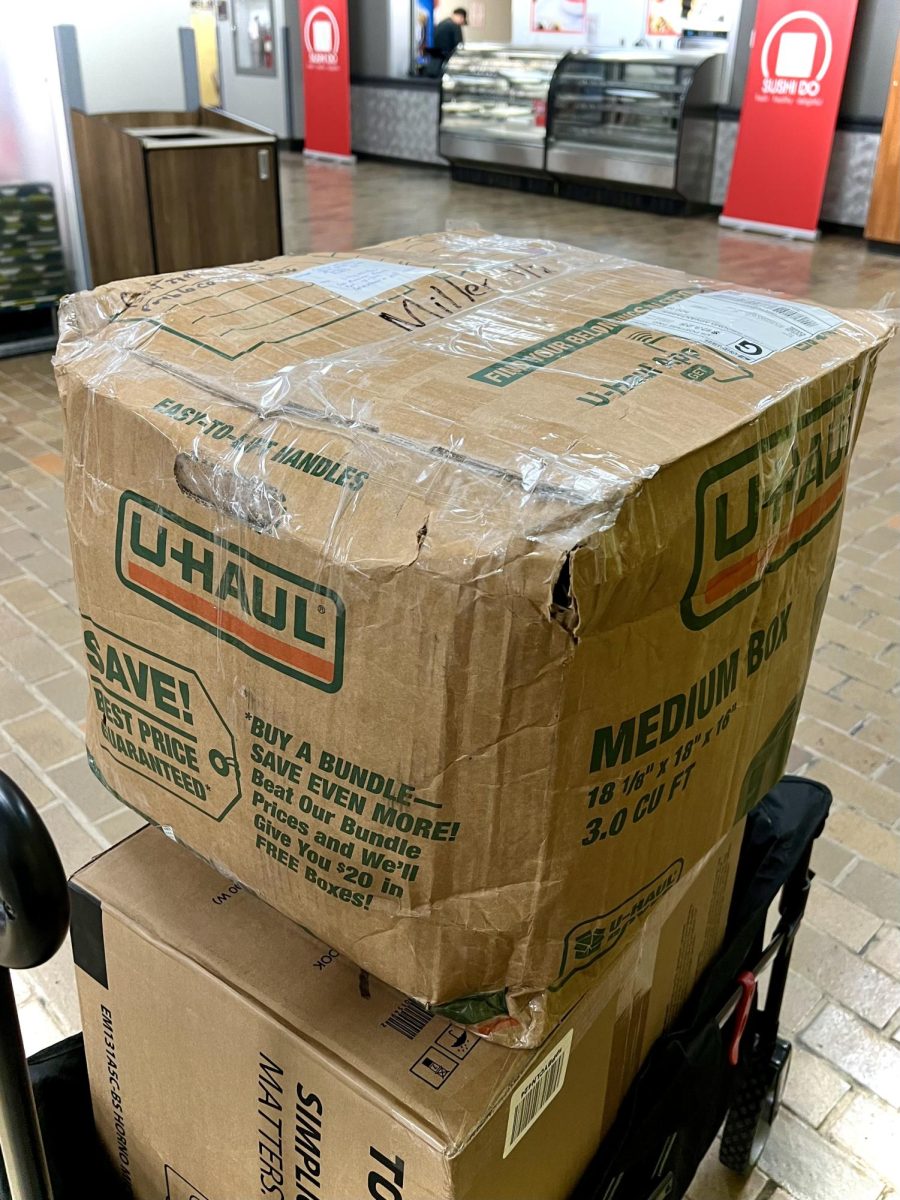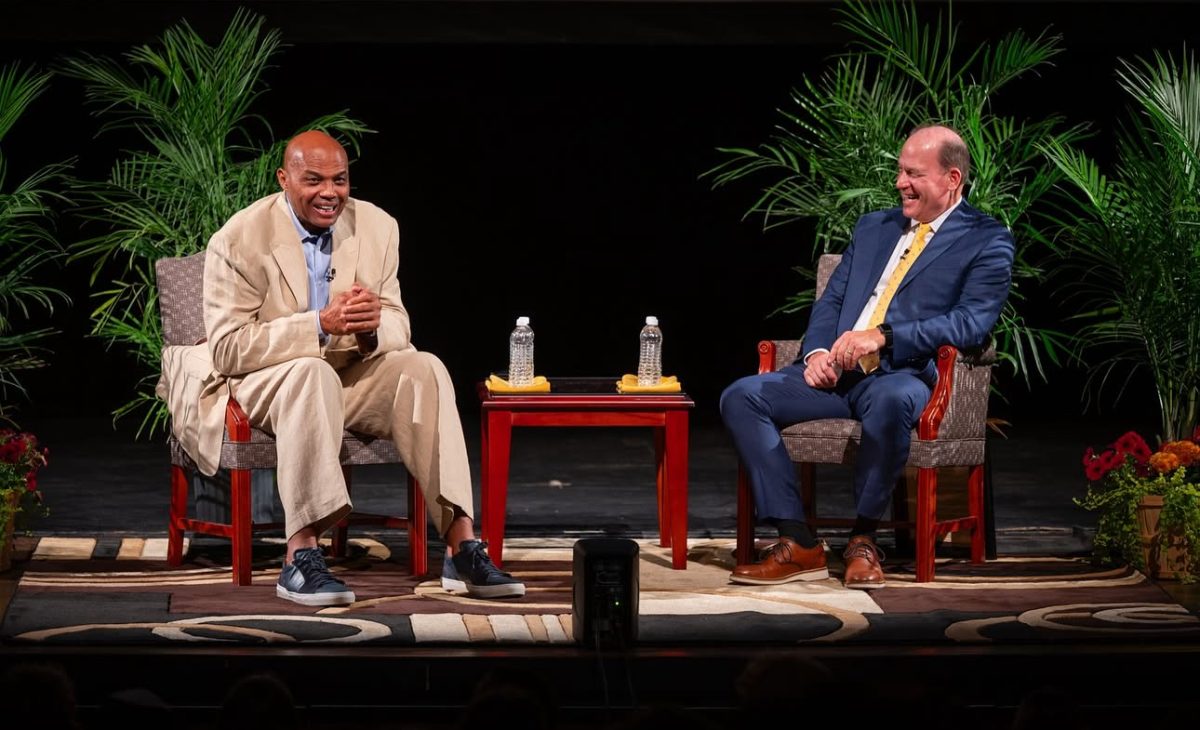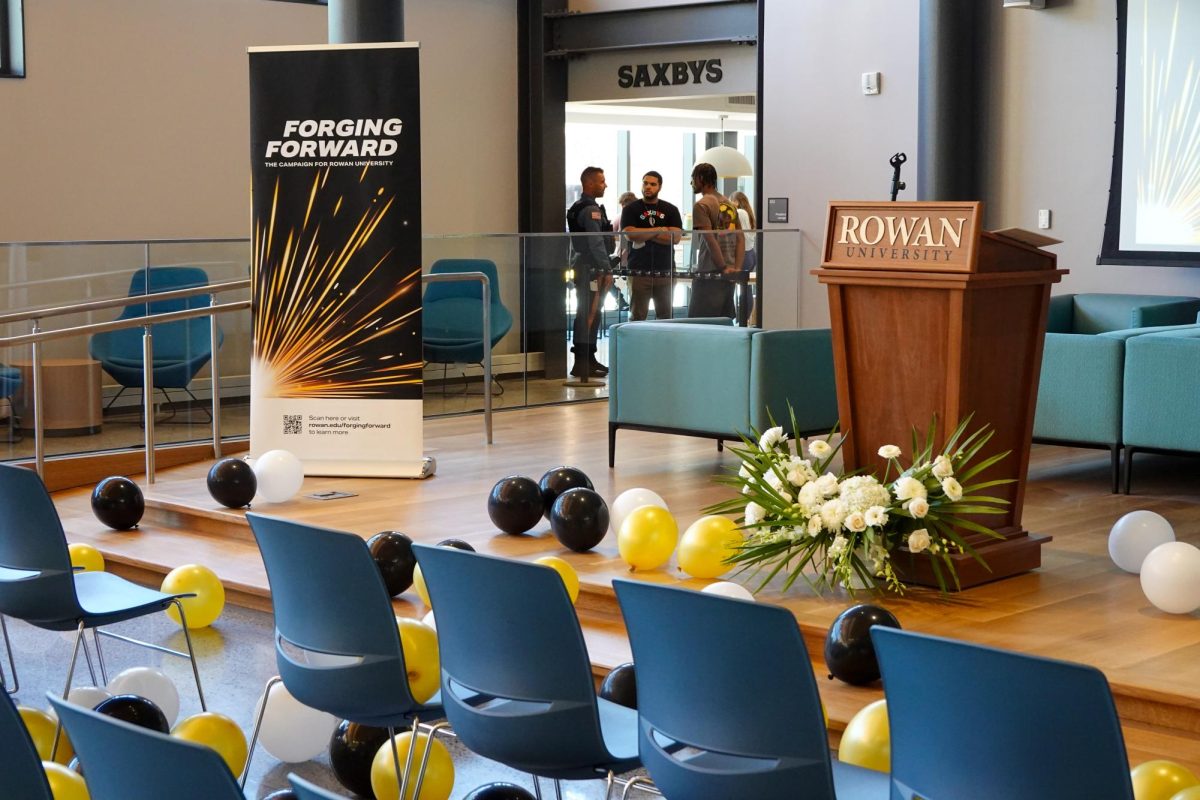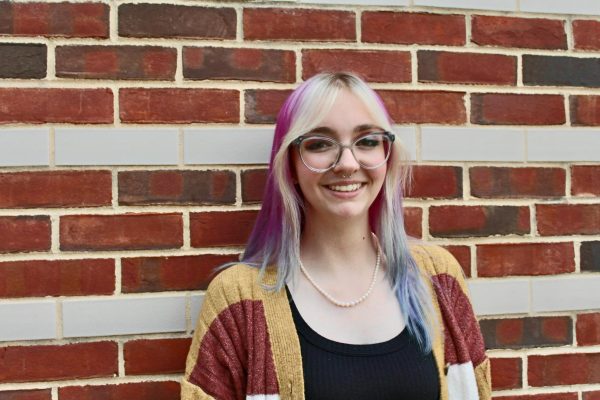With an introduction to Rowan’s new chancellor and provost, Tony Loman and Vojislava Pophristic, respectively, updates from Vice Chancellor and CEO of Rowan Online Michael Roark, and a laundry list of issues and updates relevant to university faculty and the university at large, the University Senate confronted a lengthy agenda last Friday.
Speaking in front of the University Senate for their first meeting of the semester on Friday, Sept. 26, Lowman debuted his new position of chancellor and presented the change as a boon to the university.
“I’m not sure how much stuff doesn’t report to the chancellor role,” said Lowman. “A lot of these opportunities, we are now under NDAs that kind of keep us from talking, I would say. We do want to look at the footprint we’re trying to leave throughout the state.”
Lowman went on to describe Rowan’s presence across South Jersey in locations such as Glassboro, Camden, Sewell, and Stratford, with a new location in Trenton being announced over the summer.
“Our strategic focus on building out some of these might give you a little bit of our road map,” said Lowman.
Not only is Rowan focused on expanding its footprint, but it is also on bolstering its status by becoming an R1 school. By becoming an R1 institution, Rowan would be listed in the Carnegie Classifications of Institutions of Higher Learning, a list of all universities that spend $50 million or more per year on research and grant 70 or more doctoral degrees annually.
At the mention of becoming an R1 school, Samantha Kennedy, an information literacy librarian with the Campbell Library, asked a question of speakers Lowman, Pophristic, and Roark.
“There’s no other R1 where the library is not an academic part of the campus,” said Kennedy. “If we were to become an R1, the library is not an academic part of our campus. That would seem like a problem, because it is also currently a problem with us being an R2. What is the vision for the library? And how quickly can we become academic again?”
As Rowan continues to grow, the library has seemingly shrunk, especially with the ongoing renovations at the Campbell Library, which have currently shuttered all but one floor of the building.
Amidst these physical changes, there have also been administrative ones, with a marked shift in focus from the library being a resource for students in their academic pursuits, such as research and writing, to a focus on the technological. It seems these changes have been made without the input of the very librarians and students they impact.
“Part of this restructuring is, we’ve got to stop thinking of academic and non-academic, and we’ve got to think about any function we do at this institution has to be supporting our academics,” said Lowman.
The conversation evolved, covering the incursion of information technology upon the library and the lack of focus the present administration has on the “people first” nature of libraries such as Rowan’s.
The meeting with Lowman, Pophristic, and Roark concluded with a string of questions and comments regarding Rowan Online, which operates primarily by offering students online courses and potential pathways to graduating without ever setting foot on a Rowan campus.
“Part of the idea of growing a fully online program is that it brings students who [aren’t] going to come to campus, but for a fully online program,” said Roark.
Roark emphasized that if it’s inappropriate for a class to have an online analogue, it’s an academic choice left to instructors to make. One such example is for biology majors and their lab requirement, which cannot be simulated or replaced in the online environment.
After running over the time allotment for their segment of the meeting, Lowman, Pophristic, and Roark exited King Auditorium and left the president of the University Senate, Bill Freind, to cover the remainder of the agenda.
Though the tone of the meeting slightly relaxed once Freind took over, the topics of discussion did not get any lighter.
Two agenda items stood out. The first was the creation of a parking task force to continue to tackle the ongoing problem of parking on campus, which impacts both students and faculty. Currently, the task force represents a collaboration between the University Senate, the Rowan Student Government Association, and facilities. Senators agreed to reach out to adjunct faculty to include them in the discussion without having them serve on the task force, which would be in violation of their contracts.
The other agenda item was a response to the current tumult surrounding H-1B visas. Earlier in the meeting, Lowman discussed how international student admissions are down 37% from last year.
Many faculty members and international students are in the United States on H-1B visas, or applied to be in the country on such visas, and their lives here now hang in the balance. Freind addressed those concerns by referring faculty to Gokhan Alkanat, Associate Provost for International Education, while also revealing that international faculty do not have their own point person to rely on in times like these.
Another senator encouraged members to work with the HR department, who supposedly have their own responsibilities regarding faculty on H-1B visas.
Freind stood firm in the idea that, in spite of rising tensions at the federal level, Rowan faculty should continue to teach their students the same way they always have, and not change in the face of growing censorship and outrage.
“Remember, Ali Houshmand lived under two dictatorships. He lived under the Shah, a secular dictatorship, and then the Ayatollah. So his sensitivity to these things it’s better than most people’s,” said Freind.
For comments/questions about this story, DM us on Instagram @thewhitatrowan or email [email protected]

